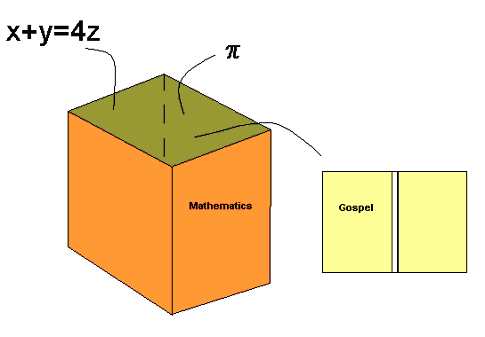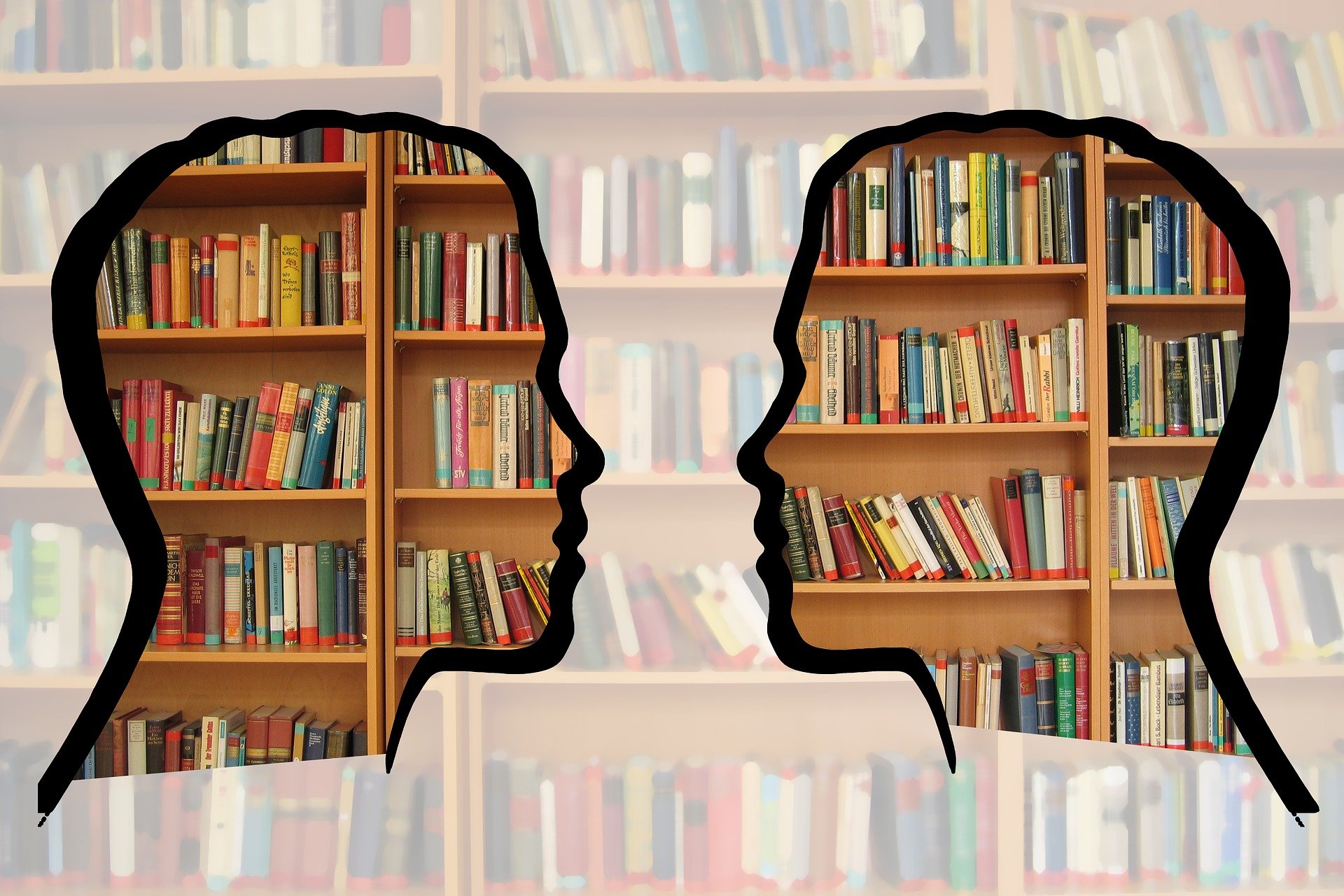The alliance of science and religion: a contribution from mathematics
Highland Park, New Jersey –
Recent research in Mathematics is showing that solidarity and cooperation lead a social group to evolve faster than selfishness. It constitutes an important scientific result favoring the essential lessons of the Gospel.
Unfortunately, a good part of our society does not enhance the religious teachings considering them as product of fanatism. The most scientists only see the selfishness as the only one reason for all acts of the human being and they say that it is in Nature when consider the idea given by the expression “the selfish gene”[1] that states that the evolution promotes the individuals that have higher capacity of proliferating themselves. In other words, the genes that reduce the success of being spread tend to disappear.
Despite the idea of the selfish gene be verified in several processes in Nature there is an intricate question for which the scientists does not have an answer yet. It is about the strange cooperative behavior and altruism between animals of different species and families [2,3]. The human altruistic behavior cannot be understood in terms of the gene-based evolutionary theories [4]. It is known [3] that Charles Darwin [5,6], the father of the Theory of Evolution, noted that the process of natural selection could not promote by itself the altruistic behavior where some individuals reach the point of reducing their abilities so as to favor other members of the species. We shall present here an interesting scientific research, motivated by these questions, whose solutions we interpret in a moral sense.
The subject of this paper agrees with some of Allan Kardec’s statements found in the issue 8 of chapter one of The Gospel According to Spiritism, with the title: “The Alliance of Science and Religion”[7]. We transcribe the following part:
“Science and Religion are the two levers of human intelligence, one revealing the laws of the material world, the other revealing the laws of the moral world. But seeing that these laws have the same principle, which is God, they cannot contradict themselves.”(Original remarks).
This statement is a fundamental idea that reveals the divine character of all creation. As Kardec says if Science and Religion contradict one each other than one or another will be incorrect because God, “the Supreme Intelligence, first cause of all things” (question 1 of the Spirit’s Book [8]. Our remarks.) did not intent the destruction of His own creation. We, spiritists, knew that it is in vain that the scientists, politicians and sociologists look for formulas for the social progress out of the Christian essential principles. Kardec [7] also said that:
“We have now reached a phase upon this planet when the teachings of Christ must be completed and the intentional veil cast over some parts of these teachings lifted. A time when science must desist in its exclusive materialism, so taking into consideration the spiritual element; when religion must cease to ignore the organic and immutable law of matter, so that both may become two forces, each learning one the other and advancing together in mutual concourse. Then religion, no longer discredited by science and no longer being able to oppose the overwhelming logic of the facts, will acquire an unshakable power because it will be in agreement with reason.”
Therefore, when the results of scientific research cannot be used against the religious teachings, these will acquire a strong power because they will be in accord to reason. But, if these scientific results start showing that the religious teachings are correct or sensible, the materialistic and selfish people will not have excuses anymore to regard the religious teachings to the plane of the blind faith.
So, who could imagine that just the most abstract science, Mathematics, could give rise to some results that verify some of the Jesus’ essential moral teachings? In this paper, we shall present the news about a research in Mathematics and Statistics where subjects like “cooperation” and “non-cooperation”, “altruism”, “selfish”, etc., are analyzed numerically using statistical models that reflect the behavior of a given population. We explain that these models do not say anything about a human behavior because the free will is not a mathematic function. These models only reflect the statistical behavior of a group of people where a given percentage, for example, cooperates, other percentage does not-cooperate, and so on. Despite the obtained results are amazing, the scientists usually try to explain them in terms of an acquired behavior in thousands of years of evolution, in the sense given by the Darwin’s Theory of Evolution.
The so-called Theory of Games [9] is the basis of the research [10,11] we shall present in this paper. This theory was developed to study the behavior of social groups interacting together, for example, in economic investments. There is a game called “The Public Goods Game” that is defined as follows. A group of players receives a given amount of money to invest in a common pool. The rules are: in each step the sum of invested money is doubled and then shared equally to all participants, independent of how much money each one put in the pool. Each player can invest the value he or she wants including the possibility of not investing anything. The maximum profit occurs if all players invest all money they have (all cooperate). But there is a temptation: do not invest anything and receive the other players’ interest (attitude of non-cooperation). The temptation occurs because who does not-cooperate always gains more money than who cooperates after each step of the game (see table 1). However, by seeing that someone did not-cooperate, the other players tend also to not-cooperate and the final consequence is that all players do not-cooperate, anyone gaining anything (table 1). Therefore, in common public goods, actions based on purely selfishness lead to own prejudice (is this thinking not familiar in the Gospel?). It is a social dilemma appearing in the dynamics of several social activities as, for example, the Health Plan. If each person, that belongs to a Health Plan, thinks that he or she have to use the service all time only because it is being paid, the consequence will be the increasing of the price or the bankruptcy of the company. If all cooperate using the Health Plan only when it is really needed, it will be possible to make the service to get better and even the price to get down. Therefore, all participants will have the advantage of the cooperative behavior.
| Players | Strategy 1: All Cooperate | Strategy 2: All Do Not-Coperate |
Strategy 3: Player A Does Not-Cooperate | |||
| Before |
After |
Before |
After | Before |
After | |
| A |
10,00 |
20,00 |
10,00 |
10,00 |
10,00 |
25,00 |
| B |
10,00 |
20,00 |
10,00 |
10,00 |
10,00 |
15,00 |
| C |
10,00 |
20,00 |
10,00 |
10,00 |
10,00 |
15,00 |
| D |
10,00 |
20,00 |
10,00 |
10,00 |
10,00 |
15,00 |
Table 1: Examples of different strategies in the Public Goods Game, where the invested money is doubled and then shared equally to the participants. Players A, B, C and D received, initially, US$10,00 to invest in the common pool. “BEFORE” and “AFTER” mean the values that each player owns before and after a step of the game. In the strategy 1, all cooperate investing all money, gaining the double of what they had before playing one step of the game. In the strategy 2, all do not-cooperate not investing anything and therefore, not gaining anything. In the strategy 3, only the player A does not-cooperate and his or her interest was higher than that of the other players that invested all money they had. If the player A does not invest anything, the sum of invested money by the other players is equal to US$30,00. After doubling this value, the total amount to be shared with all players is US$60,00. After dividing by the 4 players, in accord to the rules of the game, it results in US$15,00 for each player. As the player A did not invest anything he or she owns US$25,00, while the other players own only US$15,00. That is the reason of the temptation of not investing anything and receiving the interest from the others’ investments. But if all players act like that, nobody gains nothing.
Numerical simulations in a computer machine showed how the social groups evolve where each individual, in order to make the most profit, may choose changing of strategy among the possible ones as cooperate, not-cooperate, or even, not-play (in the last case the player does not receive anything from the common pool). Under varied conditions as, for example, the payment of a tax to make an investment, after some time (or after running the game for various times), several situations are verified that predominate within the social group as the cooperative or non-cooperative behavior. In an interesting scientific work, Szabó e Hauert [12] showed that, in these computational simulations, voluntary participations of whom usually does not-play, prevent the group from increasing the number of the non-cooperators (the ones that do not invest anything and receive part of the total interest).
But, the main purpose of such a research is not to see the Christian teachings. We note that there exist economic motivations behind that. However, it is impossible not seeing the moral consequences that the results of this research present. It is interesting to note how these moral results rise naturally from the computational simulations of this game without consider them as hypotheses. We see that when the society really follows the Christian teachings, summarized in the phrase: “you must love God and your neighbor as yourself”, then the humanity will evolve much more quickly, in all senses, because all cooperate and all will fell the good consequences of this cooperation. What do we think is important to see is that this conclusion is becoming a mathematical certainty.

The dynamics of the Public Goods Game has some similarity with the process of evolution of a spirit. After many selfish steps, that represent non-cooperative attitudes of the spirit during the life, the principle of cause and effect (Chap. V of The Gospel According to Spiritism [7]), returns to us the consequences of our acts and decisions, compelling us to “play” in a charitable and kind way (i.e., to cooperate) in the next opportunities of the life. We suggest the reading of a great article of Richard Simonetti [13], that stimulate us to invest in the “Bank of the Providence, assisting all people who lives in material difficulties, people who needs every kind of help, assisting them in these needs.”[13](Our translation from the original in Portuguese).
We call the spirit of Emmanuel, in answer to the question 69 of the book called O Consolador [14], to conclude our paper (by talking about the spiritual value of the abstract sciences. Mathematics is one of them):
“We cannot neglect the cooperation of the abstract sciences to the educative postulates, by training the intelligences, dilating the spontaneity in the spirits, in order to establish the facility of understanding of the value of the planetary life, but we have to acknowledge that its activities, almost always related to the world problems, are processes or means by which man reaches the science of life in its deepest spiritual revelations, science that symbolizes the divine aim of all investigations and analysis of the organization of the Earth.”(Our remarks and our translation from the original in Portuguese).
The results of the above research reflect each individual’s choices with respect to the acts performed during the life. This choice depends on each one’s degree of evolution. Therefore, all efforts in our innermost reform constitute the greatest investment for a real good future life, with peace and love. May God continue helping us to make this effort!
References
[1] R. Dawkins, The Selfish Gene, Oxford University Press, (1989).
[2] K. Sigmund e C. Hauert, Current Biology, Vol. 12, p. R270 (2002)
[3] F. Michor e M. A. Nowak, Nature (London), Vol. 419, p. 677 (2002).
[4] E. Fehr and U. Fischbacher, Nature, Vol. 425, p. 785 (2003).
[5] The reader will find a complete description of the Charles Darwin’s Theory of Evolution and its connection to Spiritism in the book of the reference [5].
[6] H. M. L. de Souza, Darwin e Kardec Um Diálogo Possível, Centro Espírita Allan Kardec Dep. Editorial, (2002).
[7] A. Kardec, The Gospel According to Spiritism, The Headquarters Publishing CO LTD (London), 1st. Edition, (1987).
[8] A. Kardec, The Spirits’ Book, Editora FEB (Brasília), 2a. Edição, (1996).
[9] J. von Neumann e O. Morgenstern, Theory of Games and Economic Behavior, Princeton Univ. Press, New Jersey, (1944).
[10] M. A. Nowak, R. M. May e K. Sigmund, Scientific American, Vol. 272, p. 76 (1995).
[11] K. Sigmund, E. Fehr e M. A. Nowak, Scientific American, Vol. 286, p. 83 (2002).
[12] G. Szabó e C. Hauert, Physical Review Letters, 89, p. 118101 (2002).
[13] R. Simonetti, Reformador, Agosto, p. 14 (2003).
[14] Emmanuel, Psicography of F. C. Xavier, O Consolador, Editora FEB, 20a. Edição (1999).
The author would like to thank Mr. Renato Costa and Mrs. Marcia for correcting the translation of this paper from the original in Portuguese into English.
Source: The Spiritist Messenger, 12th Year, Number 45, December 2003
Sobre o autor:

Alexandre Fontes da Fonseca: formado em Física é Professor e Pesquisador da UNICAMP. Escritor e conferencista espírita e vice-presidente da União das Sociedades Espíritas do Estado de São Paulo (USE). Ex-editor do GEAE e Fundador e editor do primeiro periódico espírita com estilo acadêmico e científico, o Jornal de Estudos Espíritas.








